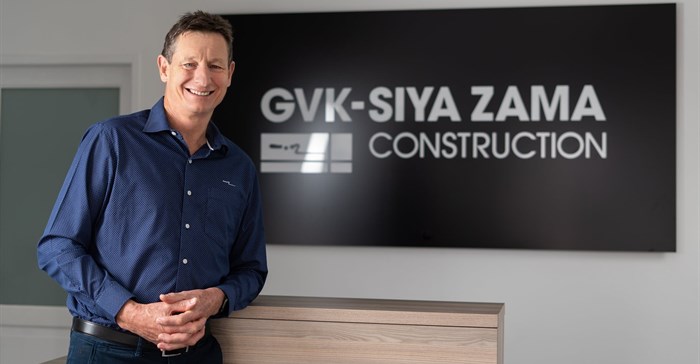South Africa's construction industry has added 104,000 jobs to the economy, outstripping trade by 12,000 new jobs. This comes as the country celebrates a 0.3% decrease in the unemployment rate, according to the Department of Statistics' quarterly labour force survey for the second quarter of 2023.

Eben Meyburgh, CEO of GVK-Siya Zama. Source: Supplied
Eben Meyburgh, CEO of GVK-Siya Zama, one of South Africa’s largest privately owned construction companies, says this could be a sign of a turnaround after years of turmoil. However, he cautions that the industry still faces challenges such as unsustainable markups, disproportionate risk, and the loss of skilled professionals to jobs abroad.
Having joined GVK-Siya Zama some 18 years ago, after completing a work stint in the Middle East, Meyburgh became CEO in 2015. Today, he sees the industry through different eyes, noting that the 63-year-old company cannot rest on its laurels, but “must be innovative and remain at the cutting edge; adapt, make changes, reinvent and invigorate the business”.
Construction may be the second biggest employer, but in contrast to the taxi industry, for example, it is highly regulated and constrained by legislation, with little to no assistance from government. Help, he says, is not coming.
Meyburgh and his team have tripled the size of the business, which by his own admission, comes with many hard-earned lessons. One, he says, is to evaluate opportunities differently.
Mega projects make a mark on the industry
“We all go through phases of chasing mega projects, which in today’s terms, would amount to R1bn plus. We do it to make a mark in the industry, to assert our position and competence.” He goes on to explain that a lack of skills in the local talent pool, unreasonable risk and exposure and sustained pressure on mark-ups have forced the business to reevaluate the way it does things.
The group recently completed construction of Sipetu District Hospital in rural Eastern Cape. His love for the industry is evident as he talks about building a first world facility, to the highest standards, in a town where people struggle to buy a Coke and the nearest Wimpy is 100km away. He commends the government for the facility as he enthuses about the permanent, meaningful, and sustainable employment created for nurses, doctors, cleaning staff, gardeners, cooks and many more.
The redevelopment of Cape Town station for Eris Properties is another feather in GVK-Siya Zama’s cap.
“It is an immense honour to be involved in this landmark project with Eris. As visionary property practitioners, Eris is pursuing the growing market in student accommodation and we stand in awe of how this build will change the landscape in downtown Cape Town, adding life and vitality and much-needed quality, modern accommodation for the city’s student population.”
Overcoming hurdles requires perseverance and agility
The construction dice is further loaded by fluctuating material prices that are rarely protected by in-contract escalation clauses. Fixed-price contracts have always been popular in the private sector but are now becoming the norm in the public sector. It’s a trend that Meyburg says adds undue risk to the contractor, given that currency fluctuations and global events have a significant impact on the price of materials.
Throw in largely unskilled or inappropriately skilled labour expected to deliver high standards of finishes, often way beyond their abilities, as well as site disruption and work stoppages caused by militant and often violent forces, and it becomes clear why the industry finds itself in such a difficult place.
Based on acceptable business fundamentals, the industry would indeed appear to be doomed. However, it remains the home for and passion of thousands of committed professionals, men and women who cannot ignore the lure of outdoor work and the thrill of seeing their projects rise out of the ground.
“Doing business and staying in business is a challenge for the brave, and the construction industry must continue to forge ahead and build on the foundations laid over many decades, provide opportunities to a committed and loyal workforce, and create new jobs.
The construction industry has always been an essential driver of economic growth and job creation in South Africa, and we must continue to innovate, adapt and persevere if we want to be part of the change our country needs to ensure its global success,” concludes Meyburgh.






































